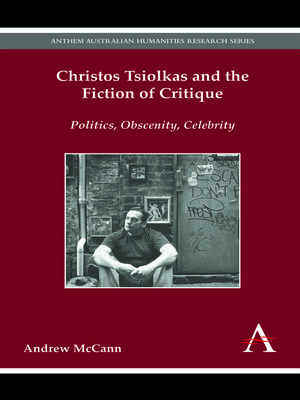Christos Tsiolkas and the Fiction of Critique
ebook ∣ Politics, Obscenity, Celebrity · Anthem Australian Humanities Research Series
By Andrew McCann

Sign up to save your library
With an OverDrive account, you can save your favorite libraries for at-a-glance information about availability. Find out more about OverDrive accounts.
Find this title in Libby, the library reading app by OverDrive.



Search for a digital library with this title
Title found at these libraries:
| Library Name | Distance |
|---|---|
| Loading... |
Christos Tsiolkas is one of the most recognizable and internationally successful literary novelists working in Australia today. He is also one of the country's most politically engaged writers. These terms – recognition, commercial success, political engagement – suggest a relationship to forms of public discourse that belies the extremely confronting nature of much of Tsiolkas's fiction and his deliberate attempt to cultivate a literary persona oriented to notions of blasphemy, obscenity and what could broadly be called a pornographic sensibility. 'Christos Tsiolkas and the Fiction of Critique' traces these contradictions against Tsiolkas's acute sense of the waning of working-class identity, and reads his work as a sustained examination of the ways in which literature might express an opposition to capitalist modernity.
|Christos Tsiolkas is one of the most recognizable and internationally successful literary novelists working in Australia today. He is also one of the country's most politically engaged writers. These terms – recognition, commercial success, political engagement – suggest a relationship to forms of public discourse that belies the extremely confronting nature of much of Tsiolkas's fiction and his deliberate attempt to cultivate a literary persona oriented to notions of blasphemy, obscenity and what could broadly be called a pornographic sensibility.







